
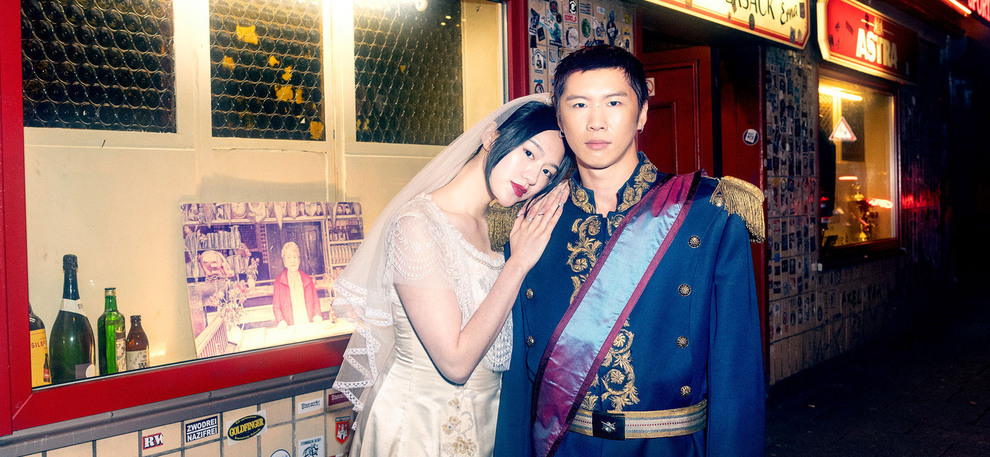

Michail Glinka | Ruslan und Ljudmila
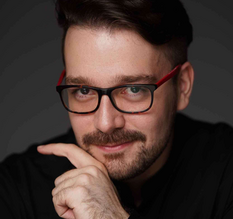
Musikalische Leitung
Azim Karimov
Conductor
Sorry, there is no biography available at the moment.
photo: Emil Matveev
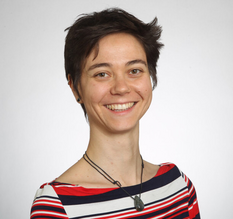
Chorleitung
Alice Meregaglia
Choir direction
Sorry, there is no biography available at the moment.
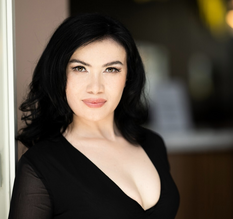
Ljudmila
Barno Ismatullaeva
Soprano
Birthplace:
Andijan, Uzbekistan
Studies:
State Conservatory of Uzbekistan, Tashkent
Prizes:
1st prize "Competizione dell'Opera", Tashkent 2014
Important parts:
Cio-Cio-San (Madama Butterfly), Suor Angelica, Mimì (La bohème), Nedda (I pagliacci), Desdemona (Otello), Amelia (Simon Boccanegra), Norma, Elisabetta (Maria Stuarda), Elisabetta (Roberto Devereux), Tatjana (Eugen Onegin), soon: Tosca, Francesca da Rimini (Zandonai)
Stages:
Bregenzer Festspiele, Teatro Real Madrid, Teatro Regio Turin, Teatro Massimo Palermo, Dutch National Opera Amsterdam, Koninklijk Concertgebouw Amsterdam, Gran Teatro Nacional Lima, Hamburgische Staatsoper, Elbphilharmonie Hamburg, Oper Leipzig, Staatsoper Hannover, Musikverein für Steiermark Graz, Konzerthaus Wien, Teatr Wielki Warschau, Bukarester Nationaloper, Alischer-Nawāʾī-Staatsoper und -Ballett Taschkent, Oper Dortmund, Staatstheater Nürnberg, Deutsche Oper am Rhein Düsseldorf, Aalto-Theater Essen, Tiroler Landestheater Innsbruck, Stanislawski- und Nemirowitsch-Dantschenko-Musiktheater Moskau, Mariinsky-Theater Primorsky Wladiwostok
Cooperations with directors:
Andreas Homoki, Barbora Horáková, Carlos Wagner, Davide Garattini, Dirk Schmeding, Elisabeth Stöppler, Eva-Maria Höckmayr, Immo Karaman, Jetske Mijnssen, Karin Beier, Lydia Steier, Mario Martone, Nicola Berloffa
Cooperations with conductors:
Omer Meir Wellber, Enrique Mazzola, Nicola Luisotti, Antonino Fogliani, Andrea Battistoni, Giampaolo Bisanti, Jader Bignamini, Axel Kober, Constantin Trinks, Cristian Măcelaru, Matteo Beltrami, Roberto Rizzi Brignoli, Luis Miguel Méndez Chaves, José Miguel Pérez-Sierra, Michele Spotti, Jordan de Souza, Christoph Gedschold, Stephan Zilias, James Hendry
photo: Juan Carlos Blanco Olea

Ruslan
Ilia Kazakov
Bass
Sorry, there is no biography available at the moment.
photo: Kristina Klein
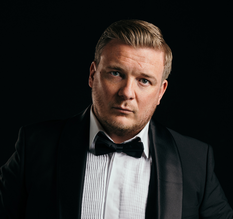
Farlaf
Alexei Botnarciuc
Bass
Sorry, there is no biography available at the moment.
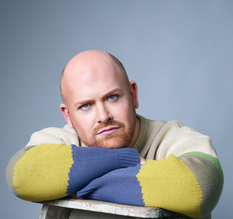
Bajan / Finn
Nicky Spence
Tenor
Sorry, there is no biography available at the moment.
photo: Ki Price
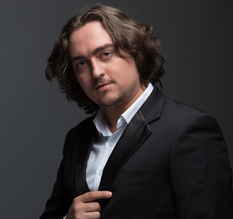
Ratmir
Artem Krutko
Countertenor
Sorry, there is no biography available at the moment.
photo: Andrey Golubev
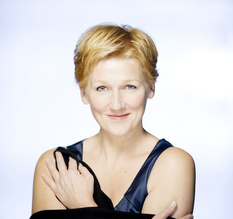
Naina
Angela Denoke
Soprano
Angela Denoke was born in Stade near Hamburg in Germany. After completing her studies at the "Hochschule für Musik und Theater" in Hamburg, she joined the ensemble of the Theater Ulm followed by the Staatsoper Stuttgart.
She is closely associated with the Wiener Staatsoper (Lady Macbeth of Mtsensk, Arabella, Salome, Die tote Stadt, Parsifal, Jenufa, Der Rosenkavalier, Lohengrin, Tannhäuser and Pique Dame), the Opera National de Paris (Salome, Katya Kabanova, Cardillac, Der Rosenkavalier, Wozzeck, Parsifal, Fidelio, and Vec Makropulos), the Deutsche Staatsoper Berlin (Tannhäuser, Fidelio, Pique Dame and Erwartung under Daniel Barenboim, Der Rosenkavalier and Tannhäuser under Philippe Jordan) and the Bayerische Staatsoper (Salome, Der Rosenkavalier, Parsifal, Jenufa and Wozzeck). For the Salzburg festivals she has sung Katya Kabanova, Die Tote Stadt, Wozzeck, Fidelio and Vec Makropulos.
She has sung with the London Symphony Orchestra (Daniel Harding, Valery Gergiev and Gianandrea Noseda), Boston Symphony Orchestra (Andris Nelsons), Symphonieorchester des Bayerischen Rundfunks (Nelsons and Bychkov), Philharmonia Orchestra (Esa Pekka Salonen and Andris Nelsons) and the Berliner Philharmoniker (Sir Simon Rattle), and she appears at the Royal Opera House, Metropolitan Opera New York, Netherlands Opera, Semperoper Dresden, Teatro Real Madrid, Gran Teatre del Liceu Barcelona, Opernhaus Zürich, and at the Paris Chatelet. She made a highly acclaimed debut at Teatro alla Scala, Milan in Vec Makropulos.
Her recordings include Vec Makropulos (Salzburg Festival 2011, DVD), Salome (Baden-Baden, DVD), Alceste (Madrid, DVD), a New Year’s Eve Lehar Gala (Staatskapelle Dresden with Christian Thielemann, CD and DVD), Die tote Stadt, Die Walküre, Kátya Kabanová, Cardillac, Beethoven 9 (with Mikhail Pletnev / DG and Daniel Barenboim / Warner), Wozzeck (with Ingo Metzmacher / EMI) and Fidelio (with Simon Rattle / EMI).
Her jazz and chanson programme “From Babelsberg to Beverly Hills” (devoted to the era of Marlene Dietrich and Zarah Leander) has toured throughout Europe. Her Kurt Weill recital “Two Lives to Live” was premiered at the 2011 Salzburg Festival and toured venues including the Wiener Staatsoper and the Liceu, Barcelona. Her latest recital programme “Städtebewohner, Kurt Weill und seine Zeit” premiered at the 2015 Salzburg Festival.
Engagements last season include La Donna in Eötvös´ “Senza Sangue/Herzog Blaubarts Burg” at the Hamburgische Staatsoper, Berlioz La Reine for the Nationaltheater Mannheim and Katya Kabanova and Marschallin for the Wiener Staatsoper.
She was voted Singer of the Year by Opernwelt in 1999 and in 2007 received the Deutsche Theaterpreis Der Faust for her portrayal of Salome. In February 2009 the Austrian Government awarded her the title of Kammersängerin of the Wiener Staatsoper.
photo: Johan Persson
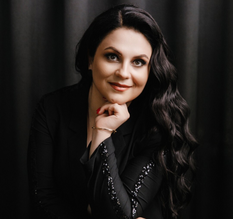
Gorislawa
Natalia Tanasii
Soprano
Birthplace:
Moldova
Studies:
Zurich International Opera Studio, the Jerwood Young Artist at Glyndebourne Festival Opera, the young ensemble of the Norwegian National Opera
Prizes:
2nd Prize winner of the Neue Stimmen competition
Important parts:
Micaela (Carmen), Fifth Maid (Elektra), Zerlina (Don Giovanni), Fiordiligi (Così fan tutte), Tatyana (Eugene Onegin), Mimi (La bohème), et al.
Stages:
Opernhaus Zurich, La Monnaie, Teatro Massimo di Palermo, Opéra Royal de Wallonie-Liège, Opéra de Lausanne, Garsington Opera, Oper Frankfurt, Salzburg Festival, Teatro Nacional de São Carlos, Den Norske Opera & Ballet, Teatro Arriaga in Bilbao, et al.
Cooperations with directors:
Calixto Bieito, Laurent Pelly, Lotte de Beer
photo: A. Lurkovski
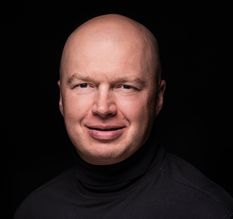
Swetosar
Alexander Roslavets
Bass
Birthplace:
Brest, Belarus
Studies:
Rimsky-Korsakov Staatskonservatorium in St. Petersburg bei Professor Nikolai Okhotnikov (2009-2014), Young Artist Programme Bolschoi-Theater in Moskau (2014-2016)
Master classes:
With Elena Obraztsova, Edda Moser, Dmitry Vdovin, Evgeny Nesterenko, Irina Bogacheva, Lubov Orfenova, Neil Shicoff, Bernd Weikl, Carol Vaness, John Fisher
Prizes:
Third prize in the first International Music Competition in Harbin (2018), third and special prize in the Queen Sonja International Music Competition (2017), second prize in the second International Opera Singing Competition of Portofino (2017), special prize in the 36th International Hans Gabor Belvedere Singing Competition (2017), grand prix and audience prize in the second International Eva Marton singing competition in Budapest (2016), second prize in the sixth Galina Vishnevskaya International Opera Singers Competition (2016), grand prix in the Special Foundation Of The President Of Belarus Supporting Talented Youth (2016), first prize in the seventh International Competition of Opera Singers in Saint-Petersburg (2015), diploma in the 10th Elena Obraztsova International Competition Of Young Opera Singers (2015), special prize in the first International Christmas Vocal Competition in Minsk (2014), grand prix in the 42nd Russian National Vocal Graduates Competition in St. Petersburg (2014)
Relation to the Hamburg State Opera:
Ensemble member of the Hamburg State Opera since 2016/17
Important parts:
Malyuta Skuratov (Die Zarenbraut), Mephistopheles (Faust), König Dodon (Der goldene Hahn), Colline (La Bohème), Bartolo (Le Nozze de Figaro), Commenadatore, Masetto (Don Giovanni), Brander (La Damnation de Faust), Il Conte di Monterone (Rigoletto), 5.Jude (Salome), Lodovico (Otello), Il Sagrestano und Cesare Angelotti (Tosca), Raimondo Bidebent (Lucia di Lammermoor), Peter Quince (A Midsummer Night’s Dream), Lo zio Bonzo (Madama Butterfly), Don Basilio (Il Barbiere di Siviglia), Fafner (Das Rheingold), Fafner (Siegfried), Sarastro (Die Zauberflöte), King René (Iolanta), Banco (Macbeth), Prince Gremin (Eugen Onegin), Daland (Der Fliegende Holländer), Vodnik (Rusalka), Dulcamara (L’Elisir d’Amore), Ali Baba (Ali Baba), et al.
Stages:
Mikhailovsky Theater, Bolschoi Theater, Tschaikowsky-Konzertsaal in Moskau, Bolschoi Theater in Weißrussland, St. Petersburger Philharmonie benannt nach Schostakowitsch, Ungarische Staatsoper, Hamburgische Staatsoper, Teatro alla Scala, Metropolitan Opera, Glyndebourne Festival, Berliner Philharmoniker, et al.
Cooperation with directors:
Rimas Tuminas, Calixto Bieito, Tito Capobianco, Paul Curran, Stanislav Gaudasinsky, Peter Stein, Alexey Stepaniuk, Achim Freyer, Liliana Cavani, Mariusz Trelinski, Melly Still, Jan Bosse, et al.
Cooperation with conductors:
Adam Fischer, Robin Ticciati, Henrik Nanasi, Vladimir Jurowski, Ainars Rubikis, Daniele Rustioni, Tugan Sokhiev, Fabio Mastrangelo, Anton Grishanin, Michal Klauza, Gregor Bühl, Kent Nagano, Paolo Carignani, Renato Palumbo, Pier Giorgio Morandi, Yves Abel, Stefano Ranzani, Carlo Rizzari, Christof Prick, Nathan Brock, Sergei Stadler, Yuri Simonov, Michail Jurowski, Vladimir Fedoseyev, Alexander Anisimov, et al.
photo: Martin Paulsson
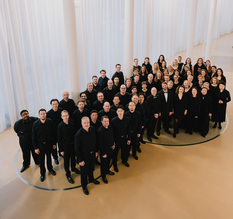
Chor
Chor der Hamburgischen Staatsoper
The chorus members appear on stage at the Hamburg State Opera in a different role almost every night. From one day to the next, they might be sailors, pilgrims or conspirators, then courtiers, hunters, the deranged or the imprisoned. In the role of crusaders in I Lombardi alla prima Crociata they travel to Jerusalem, other nights they are invited to Madama Butterfly's marriage or acclaim Prince Igor. The ladies and gentlemen of the opera chorus demonstrate their artistic prowess, their flexibility, and their love of the stage in every performance.
With a membership around 70, the chorus of the Hamburg State Opera has been one of the world’s best opera choruses for many years. The varied repertoire – almost always in the original language – is multifaceted and includes baroque operas and dramatic operas, major works by Verdi and Wagner as well as contemporary pieces. At the start of the 2013/14 season, Eberhard Friedrich took over the post of Chorus Master.
photo: Niklas Marc Heinecke
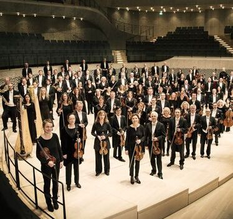
Orchester
Philharmonisches Staatsorchester Hamburg
Orchestra
The Philharmonic State Orchestra is Hamburg’s largest and oldest orchestra, looking back on many years of musical history. When the “Philharmonic Orchestra” and the “Orchestra of the Hamburg Municipal Theatre” merged in 1934, two tradition-steeped orchestras combined. Philharmonic concerts have been performed in Hamburg since 1828, artists such as Clara Schumann, Franz Liszt and Johannes Brahms being regular guests of the Philharmonic Society. The history of the opera company goes back even further: Hamburg has been home to musical theatre since 1678, even if a regular opera or theatre orchestra was only formed later. To this day, the Philharmonic State Orchestra has embodied the sound of the Hansa City, a concert and opera orchestra in one.
During its long history, the orchestra encountered great artist personalities. Apart from composers of the 18th, 19th and 20th centuries, such as Telemann, Tchaikovsky, Strauss, Mahler, Prokofiev and Stravinsky, since the 20th century chief conductors such as Karl Muck, Joseph Keilberth, Eugen Jochum, Wolfgang Sawallisch, Horst Stein, Aldo Ceccato, Christoph von Dohnányi, Gerd Albrecht, Ingo Metzmacher and Simone Young have shaped the orchestra’s sound. Renowned conductors of the pre-war era such as Otto Klemperer, Wilhelm Furtwängler, Bruno Walter, Karl Böhm and Hans Schmidt-Isserstedt gave brilliant performances, as did outstanding conductors of our times: suffice it to mention Christian Thielemann, Semyon Bychkov, Kirill Petrenko, Adam Fischer and Sir Roger Norrington.
Starting with the 2015/2016 season, Kent Nagano has taken on the position of Hamburg’s General Music Director and Chief Conductor of the Philharmonic State Orchestra and the Hamburg State Opera and since June 2023 also its honorary conductor. In his first season Kent Nagano initiated a new project, the Philharmonic Academy, focusing on experimentation and chamber music. In 2016, Nagano and the Philharmonic toured South America, followed by concert tours to Spain and Japan in 2019, and in the spring of 2023, the Philharmonic State Orchestra made its debut at New York's Carnegie Hall under his direction, which was acclaimed by audiences and the press. Since 2017 Kent Nagano and the Philharmonic State Orchestra have continued the traditional Philharmonic Concerts at the new Elbphilharmonie, for which they commissioned Jörg Widmann to compose the oratorio ARCHE, which was given its world premiere during the hall’s opening festivities. The concert recording has been released by ECM, for which Widmann received the OPUS KLASSIK as Composer of the Year 2019, and ARCHE was performed again in 2023 to great acclaim.
The Philharmonic State Orchestra offers approximately 35 concerts per season and performs more than 240 performances per year at the Hamburg State Opera and the Hamburg Ballet John Neumeier, making it Hamburg’s busiest orchestra. The stylistic bandwidth covered by the 140 musicians, ranging from historically informed performance practice to contemporary works and including concert, opera and ballet repertoire, is unique throughout Germany. Chamber Music has a long tradition at the Philharmonic State Orchestra: what began in 1929 with a concert series for chamber orchestra has been continued since 1968 by a series of chamber music only.
In 2008 Simone Young and the Philharmonic State Orchestra won the Brahms Award of the Schleswig-Holstein Brahms Society. The orchestra has recorded the complete Ring by Wagner as well as the complete symphonies of Johannes Brahms and Anton Bruckner – the latter in the rarely-performed original versions – as well as works by Mahler, Hindemith and Berg, and has released DVDs of opera and ballet productions by Hosokawa, Offenbach, Reimann, Auerbach, J.S. Bach, Puccini, Poulenc and Weber.
The members of the Philharmonic State Orchestra feel equally beholden to Hamburg’s musical tradition and responsible for the city’s artistic future. Since 1978 the musicians have been participating in education programmes in Hamburg’s schools. Today, the orchestra maintains a broad education programme, including school and kindergarten visits, patronage for music projects, introductory events for children and family concerts. The orchestra’s own academy prepares young musicians for their professional careers. The Philharmonic’s musicians thereby make an equally enjoyable and valuable contribution to tomorrow’s music education in the music metropolis of Hamburg.
photo: Foto: Felix Broede
